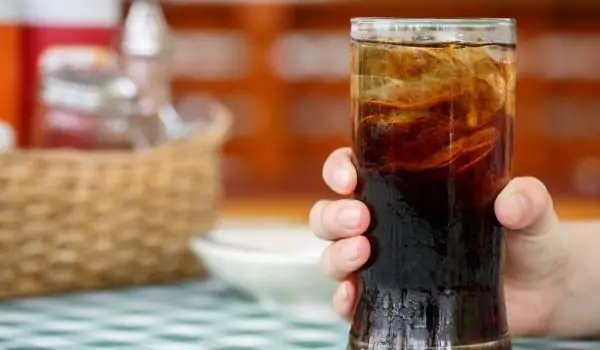2025 Author: Jasmine Walkman | [email protected]. Last modified: 2025-01-23 10:18
The macrobiotic diet is a popular diet in Japan, as well as among some other communities around the world. Most of the writings on macrobiotics focus on food and make almost no mention of beverages. It turns out that there is also beverages that are macrobiotic.
Anyone who will practice this diet will inevitably have to ask themselves the question: How much and what to drink on a macrobiotic diet?
How much should I drink?
In macrobiotic nutrition, water and other beverages are considered yin, and the main part of the diet shifts it in the direction of yang. It is therefore recommended that you drink enough to feel "comfortable" (ie not unpleasantly thirsty) and drink enough to make your urine bright yellow.
Here which drinks are macrobiotic:
1. Water
Some strict macrobiotics claim that the only drink you should drink is pure spring water. No ice, no carbonation and no additives (tea, herbs, fruit waters). Boiled water gives you bonus points for macrobiotics. Most macrobiotics and authors also drink other beverages, so don't feel bad if you just can't live on water alone. Just remember that other drinks should be light, not stimulating, to stay balanced Yin and Yang.
2. Green tea Bancha

Bancha is a green tea from Japan. It can be made from the leaves or leaves and stems of the tea plant. In macrobiotics, tea made from the twigs / stems of the plant, also known as "Kukicha", is recommended. It's Bancha preferred macrobiotic beverageas it is naturally lower in caffeine and therefore less stimulating.
3. Herbal teas
Herbal "teas" in the world of macrobiotic drinks include dandelion tea (made from the roots of the plant), kombu tea or kombucha (made from kombu algae), mu tea (also known as "mu 16 tea" because of the 16 mountain herbs * which the father of macrobiotics, George Osawa, used in his original recipe).
* Japanese parsley root, mandarin peel, licorice root, attractilis, cypress, cinnamon, peach kernel, ginger root, rimania, cloves, peony root, Japanese ginseng, etc.

4. Drinks for "economical" consumption
The following beverages are considered appropriate, but for "accidental" and less frequent consumption:
Soy milk
Beer / sake
Fresh fruit juice
Green tea
Keep in mind that drinks such as mint tea and ginger tea can be stimulating and should be consumed sparingly.
5. Vegetable juices
Vegetable juices are sometimes drunk by macrobiotics, although quite sparingly and more as a medicine than as a drink. These drinks are often very nutritious. There are many types of such juices, but from slightly more carefully selected plants. These juices also have a bean version using Azuki beans.
Recommended:
Do You Know Which Are The Most Harmful Drinks?

There is no need for large-scale research by scientists to make sure that the best things are immoral, illegal, too expensive, unhealthy or full of them. As much as we try to live a healthy life, sometimes we succumb to our momentary weakness and reach for drinks that we know are not very useful.
Which Drinks Are Useful

Nothing can completely replace our body's need for plain water. This is the most correct and most useful source of much-needed moisture. But there are drinks that, in addition to water, give our body many useful substances. Among them is green tea.
Which Drinks Are Combined With Which Foods

When we eat, we try to fully enjoy the taste of the dish. To better highlight its benefits, we must combine our food with the right drinks. Good food served with the wrong drink can spoil the pleasure of eating and there is a possibility that the dish will remain underestimated.
Which High-calorie Drinks To Avoid?

Talking about losing weight, everyone turns their eyes to what they have eaten. But no one seems to be looking at the drinks , which he drank, and does not actually consider how many calories they are for the body. You need to pay a little more attention to the delicious cold, but high-calorie fruit shakes.
Which Drinks Are Sources Of Vitamin D

One of the most important vitamins for the human body is vitamin D. Deficiency of it can adversely affect your health. Vitamin D is also known as the sun vitamin and is an important nutrient that our body needs to perform various functions.

